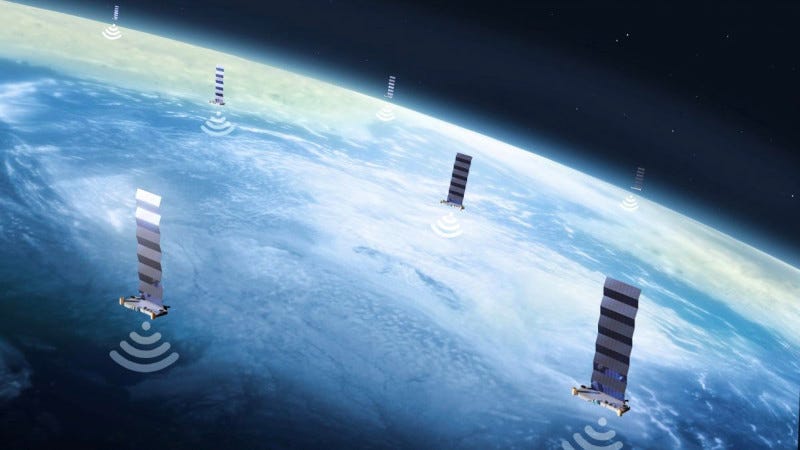T-Mobile Expands Satellite Service to Include App Data Connectivity
Voice and Video Calling, Weather, Navigation Apps Now Work Beyond Cell Coverage
A major expansion of satellite-to-smartphone connectivity now enables wireless users to access popular apps in areas without traditional cell service. T-Mobile announced Oct. 1 that its T-Satellite service, developed with Starlink, can now support data for dozens of applications including WhatsApp voice and video calling, weather forecasting, mapping and social media on compatible devices.
“Now we’re taking it up a notch and bringing essential phone apps and services into the mix — giving people access to the apps they need most, in places they’ve never had a signal before.”
Mike Katz, T-Mobile
The wireless carrier launched T-Satellite commercially in late July with text messaging and text-to-911 capabilities. The service has already proven valuable in emergency situations, according to Katz, president of marketing, innovation and experience at T-Mobile. He cited a June incident in which a Girl Scout who fell into a canyon in a remote area of California was rescued within hours after using the satellite messaging feature to contact emergency services.
The expanded service brings satellite data to apps including WhatsApp, where users can now conduct voice and video calls — even group chats — over satellite connections. Navigation apps like AllTrails and CalTopo, weather services including AccuWeather, and social media platform X are among the newly supported applications.
“We started with just text messaging and text-to-911, and those capabilities alone have proven to be invaluable for wireless users. We’ve heard story after story how T-Satellite is helping people in life-saving situations including a Girl Scout who fell into a canyon deep in the California wilderness and was rescued just hours later,” said Mike Katz, President, Marketing, Innovation and Experience, T-Mobile. “Now we’re taking it up a notch and bringing essential phone apps and services into the mix — giving people access to the apps they need most, in places they’ve never had a signal before.”
The company has worked with app developers since announcing satellite data plans in June to optimize applications for the satellite environment. While data speeds don’t match terrestrial 5G networks, the apps deliver core functionality in locations where no cell towers exist.
Device-native apps including Google Messages, Apple Music, Apple Weather, Apple Fitness and Samsung Weather also support the satellite connection. The T-Life app, T-Mobile’s customer service platform, now includes T-Satellite support with the ability to see satellite-ready apps, share location via SMS and access help resources.
For business customers, T-Mobile is extending satellite connectivity to enterprise applications. Dialpad, a communications platform, can now keep teams connected during outages or in areas without cell coverage. FLORIAN, an incident command platform designed for first responders, gains connectivity in remote or disaster areas. MultiLine offers secure communications for regulated industries, while T-Mobile Direct Connect provides voice messaging and push-to-talk features beyond terrestrial networks.
The satellite service requires compatible devices running recent software — Android 16 or iOS 26 — and functions automatically when terrestrial signals drop. No special settings or phone positioning is required. T-Mobile includes the service at no additional charge in its premium plans, while customers from other carriers including AT&T and Verizon can add it for $10 monthly.
Most satellite-capable devices manufactured within the past four years can connect to the service, which works in most outdoor areas across the U.S. where users can see the sky. Service may be delayed, limited or unavailable due to satellite coverage and network conditions. Data speeds are constrained compared to cellular networks, and some apps may not function or may operate differently than on traditional networks.
The company continues adding support for additional operating systems and applications. AllTrails iOS support is anticipated in November 2025.




